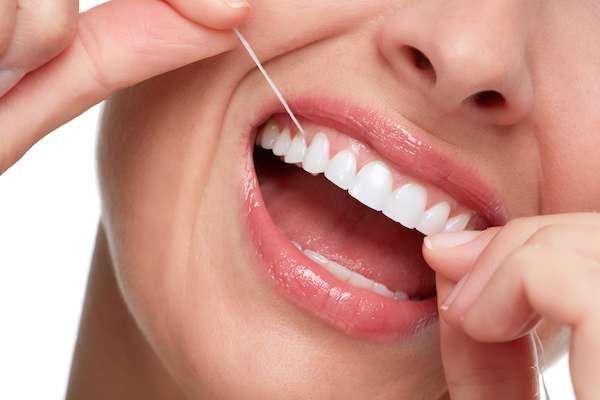Cleaning Tips From a General Dentist
 Despite what many people think, a general dentist wants to see strong, healthy teeth when patients come into the office. Dentists are, in fact, the most prominent champions of clean and cavity-free teeth; they work to educate patients and community members about proper oral care techniques and cleaning practices. With the right level of care, patients can maintain healthy teeth, avoid cavities and gum disease, and preserve overall health. However, many people are still unsure about what, exactly, they should be doing at home between professional cleanings.
Despite what many people think, a general dentist wants to see strong, healthy teeth when patients come into the office. Dentists are, in fact, the most prominent champions of clean and cavity-free teeth; they work to educate patients and community members about proper oral care techniques and cleaning practices. With the right level of care, patients can maintain healthy teeth, avoid cavities and gum disease, and preserve overall health. However, many people are still unsure about what, exactly, they should be doing at home between professional cleanings.
5 dental care tips a general dentist wants patients to follow
Proper dental cleaning is not difficult to achieve. The following tips from general dentists are designed to help patients maintain clean healthy teeth with minimal effort.
1. Use the right type of toothbrush
Not all toothbrushes are built the same. The right one for each person largely depends on overall dental health and the condition of teeth and gums. Keep in mind that soft bristles are sufficient to remove plaque and buildup. Small or angled brush heads help patients reach into the very back to get molars and wisdom teeth, and electric toothbrushes can encourage less pressure during the brushing process.
2. Watch teeth get cleaner
There is no need to scour teeth during brushing. Instead, patients should brush gently and watch the progress in a mirror to see bits of food getting removed to ensure that each tooth gets thoroughly cleaned and none get overlooked. Dental floss or a water pick device can be used to remove stubborn pieces stuck between teeth.
3. Drink water after eating
While brushing after every meal and snack is the ideal, it is not always possible. For times when getting to a toothbrush is not an option, rinsing with plain water can be an effective cleaning strategy. It washes food particles, sugars, and acids from tooth surfaces, which helps preserve enamel and stop decay. Chewing sugarfree gum is another option that works for many patients. The gum picks up stray particles while stimulating saliva production to wash surfaces clean.
4. Clean soft tissue, too
Oral health is about more than just keeping teeth clean. There are plenty of soft tissue surfaces that need attention, too. Regular tongue brushing with a specially designed brush or pad removes potentially harmful bacteria and helps freshen breath. Using fluoride toothpaste and a therapeutic mouthwash can help minimize gum disease and discomfort between visits to the general dentist.
5. Make flossing a habit
The spaces between teeth can harbor bits of food, plaque, and bacteria that cause decay and gum disease. Unfortunately, these spaces are difficult to reach through regular brushing, which is why flossing is such a crucial part of daily oral care. In addition to standard floss, pre-loaded floss picks and interdental brushes can help with this task that should be done every day.
Conclusion
Practicing proper oral care between dental appointments makes professional cleanings easier for everyone. Asking the general dentist questions during an exam is a great way to learn what type of care you should perform.
Request an appointment or call Cedar Lane Family Dentistry at 317-736-7476 for an appointment in our Franklin office.
Related Posts
General dentists spend a significant portion of their time performing preventative dental treatments. These treatments reduce the odds of common dental issues, like tooth decay and gum disease, from developing in the future. Preventative care saves patients time and money by making it less likely that they will develop severe dental problems that call for extensive…
Fluoride is a preventative measure that your general dentist uses to help protect your teeth between visits. It is also an ingredient in toothpaste that can give added protection. One of the most hotly debated topics surrounding toothpaste and tooth brushing is whether or not you should be using toothpaste that contains fluoride. Using toothpaste with…
Visiting a general dentist regularly can have a tremendous impact on the health and appearance of teeth. While carving out time in a schedule every six months for a dentist appointment can seem inconvenient, there are several reasons to set aside an hour or two twice a year for these visits.Dental professionals use specialized tools…
